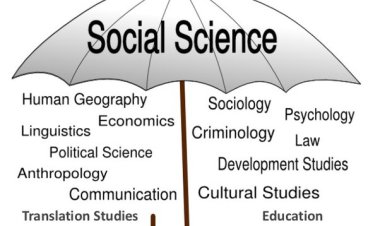Types of Bachelor’s Degrees
This Bachelor of Liberal Arts program is designed for professionals who want to further their jobs while also completing their education.

Types of Bachelor’s Degrees
When did you graduate from high school? Do you want to earn a bachelor's degree but can't decide which path to take because there seem to be so many? Students looking to distinguish themselves in today's competitive job market would do well to pursue and earn at least a bachelor's degree. The work market evolves as society does. There is a wide range of disciplines all across the world to investigate. A bachelor's degree can help you develop the knowledge and expertise you need to succeed in these fields. A bachelor's degree is an undergraduate degree earned after three to four years of study at a college or university.
Earning a bachelor's degree is a significant milestone on the road to further education and professional success. After finishing high school, a person has access to a wide variety of professional options. Many different types of degrees are available to students. If you're thinking about going to college as an undergrad and are trying to figure out which bachelor's program would be best for you, this blog will provide you all the information you need to make an informed choice.
THIS BLOG INCLUDES:
- What is a Bachelor’s Degree?
- Types of Bachelor Degrees
- Different Types of Bachelor Degrees
- Most Common Types of Bachelor’s Degrees
- Bachelor of Science (BSc)
- Bachelor of Arts (BA)
- Other Specialty Bachelor Degrees
- Top Undergraduate Popular Degrees in India After 12th
- Online Undergraduate Courses in India
- Entry Requirements for a Bachelor’s Degree
- Is a Bachelor’s Degree Worth it?
- Bachelor’s Degree Job Prospects
- FAQs
What is a Bachelor’s Degree?
A bachelor's degree program is designed to help students develop as people and as professionals. It provides students with the foundational knowledge and experience they need to pursue rewarding careers in their chosen fields. Pursuing a bachelor's degree has several benefits, including internships and voluntary work in one's field of study, which can provide invaluable, hands-on experience in the field and pave the way for a successful career.
Types of Bachelor Degrees
There are three main parts to a standard bachelor's degree:
- Liberal arts are frequently emphasized in general education courses, which are required of all college students.
- The majority of a student's time will be spent in core courses, which are aimed at developing expertise in a certain academic or occupational area.
- Elective Courses - Electives are chosen by each student with the aid of a professor. The primary goal of these concentrated studies is to deepen the student's understanding of the topic at hand.
A bachelor's degree can be earned in a variety of fields. Popular examples include:
Different Types of Bachelor Degrees
The U.S. Department of Education recognizes over 80 types of bachelor’s degrees:
- Bachelor of Architecture (B.Arch.)
- Bachelor of Arts (B.A.)
- Bachelor of Business (B.B.)
- Bachelor of Business Administration (B.B.A.)
- Bachelor of Science in Business (B.S.B.)
- Bachelor of Canon Law (B.C.L.)
- Bachelor of Computer Science (B.C.S.)
- Bachelor of Science in Computer Science (B.S.C.S.)
- Bachelor of Criminal Justice (B.C.J.)
- Bachelor of Science in Criminal Justice (B.S.C.J.)
- Bachelor of Divinity (B.D.)
- Bachelor of Education (B.Ed.)
- Bachelor of Science in Education (B.S.Ed.)
- Bachelor of Wireless Engineering (B.W.E.)
- Bachelor of Engineering (B.E./B.Eng.)
- Bachelor of Science in Engineering (B.S.E./B.S.EN.)
- Bachelor of Science in Aerospace Engineering (B.S.A.E.)
- Bachelor of Science in Agricultural Engineering (B.S.A.E.)
- Bachelor of Science in Biological Systems (B.S.B.S.)
- Bachelor of Science in Biosystems and Agricultural Engineering (B.S.B.A.E.)
- Bachelor of Science in Biological Engineering (B.S.B.E.)
- Bachelor of Biomedical Engineering (B.B.m.E.)
- Bachelor of Science in Biomedical Engineering (B.S.B.E./B.S.B.M.E.)
- Bachelor of Science in Chemical Engineering (B.S.Ch.E.)
- Bachelor of Science in Chemical and Biomolecular Engineering (B.S.Ch.B.E.)
- Bachelor of Science in Chemical and Materials Engineering (B.S.C.M.E.)
- Bachelor of Civil Engineering (B.C.E.)
- Bachelor of Science in Civil Engineering (B.S.C.E.)
- Bachelor of Science in Civil and Infrastructure Engineering (B.S.-C.I.E.)
- Bachelor of Computer Engineering (B.Comp.E.)
- Bachelor of Science in Computer Engineering (B.S.C.E./B.S.Cmp.E.)
- Bachelor of Science in Computer Science and Engineering (B.S.C.S.E.)
- Bachelor of Science in Electrical and Computer Engineering (B.S.E.C.E.)
- Bachelor of Electrical Engineering (B.E.E.)
- Bachelor of Science in Electrical Engineering (B.S.E.E.)
- Bachelor of Science in Engineering Management (B.S.E.Mgt.)
- Bachelor of Science in Environmental Engineering (B.S.En.E./B.S.Env.E.)
- Bachelor of Fiber Engineering (B.F.E.)
- Bachelor of Science in Industrial Engineering (B.S.I.E.)
- Bachelor of Science in Manufacturing Engineering (B.S.Mfg.E.)
- Bachelor of Science in Manufacturing Systems Engineering (B.S.M.S.E.)
- Bachelor of Science in Materials Science and Engineering (B.S.M.S.E.)
- Bachelor of Science in Materials Engineering (B.S.MA.E.)
- Bachelor of Mechanical Engineering (B.M.E.)
- Bachelor of Science in Mechanical Engineering (B.S.M.E.)
- Bachelor of Science in Metallurgical Engineering (B.S.Mt.E.)
- Bachelor of Science in Mining Engineering (B.S.MI.E.)
- Bachelor of Science in Systems (B.S.-SYST.)
- Bachelor of Software Engineering (B.S.W.E.)
- Bachelor of Science in Software Engineering (B.S.S.E.)
- Bachelor of Systems Engineering (B.S.E.)
- Bachelor of Science in Systems Engineering (B.S.S.E.)
- Bachelor of Engineering Technology (B.E.T.)
- Bachelor of Science in Engineering Technology (B.S.E.T.)
- Bachelor of Science in Civil Engineering Technology (B.S.C.E.T./B.S.Civ.E.T.)
- Bachelor of Science in Computer Engineering Technology (B.S.C.E.T.)
- Bachelor of Science in Construction Engineering Technology (B.S.Con.E.T.)
- Bachelor of Science in Drafting Design Technology (B.S.D.D.T.)
- Bachelor of Science in Electrical/Electronics Technology (B.S.E.T.)
- Bachelor of Science in Electrical Engineering Technology (B.S.E.E.T.)
- Bachelor of Science in Electro-Mechanical Engineering Technology (B.S.E.M.E.T.)
- Bachelor of Science in Mechanical Engineering Technology (B.S.M.E.T.)
- Bachelor of Fine Arts (B.F.A.)
- Bachelor of Forestry (B.F.)
- Bachelor of Science in Forest Research (B.S.For.Res.)
- Bachelor of Hebrew Letters (B.H.L.)
- Bachelor of Journalism (B.J.)
- Bachelor of Laws (LL.B.)
- Bachelor of Liberal Studies (B.L.S.)
- Bachelor of Literature (B.Lit.)
- Bachelor of Marine Science (B.M.S.)
- Bachelor of Music (B.M.)
- Bachelor of Nursing (B.N.)
- Bachelor of Science in Nursing (B.S.N.)
- Bachelor of Pharmacy (B.Pharm.)
- Bachelor of Philosophy (B.Phil.)
- Bachelor of Religious Education (B.R.E.)
- Bachelor of Science (B.S.)
- Bachelor of Science in Chemistry (B.S.Ch.)
- Bachelor of Technology (B.T./B.Tech.)
Most Common Types of Bachelor’s Degrees
It's enough to make your head spin that there are already more than 80 recognized kinds of bachelor's degrees. We won't go into detail on every single bachelor's degree program out there; instead, we'll focus on the ones that are awarded the most frequently:
- Bachelor of Science
- Bachelor of Arts
Yep. That's right, you've got it. We can confidently restrict the list of the dozens of bachelor's degrees conferred across the country down to the top 2. Okay, let's start exploring this.
Bachelor of Science (BSc)
A BS is one of the most common forms of undergraduate degrees earned. If you want a career in the sciences, this degree will likely come up in your search for a program. This academic program includes the following specializations:
- Biology
- Chemistry
- Mathematics
- Physics
- Computer Science
- Business
- Nursing
- Engineering
- Economics
- Nutrition
- Natural Sciences
- Education (Science Track)
Bachelor of Arts (BA)
The BA is a popular variant on the traditional bachelor's degree. This degree often includes some science courses but places more focus on the humanities and social sciences. This degree can be focused on a variety of topics, such as:
- English
- History
- Communication
- Human and Family Development
- Education
- Economics
- Earth Science
- Foreign Languages
- Fashion Merchandising
- Anthropology
- Geology
- Interior Design
- Philosophy
- Psychology
- Political Science
- Sociology
Other Specialty Bachelor Degrees
Some schools use somewhat different labels or names for their degrees than the more common ones discussed below. If you come across any such degrees, you should not be alarmed.
Many similarities exist between these degrees and the BS, BA, and BFA. When researching the many bachelor's degrees offered, you may come across the following specialization degrees:
- Bachelor of Education (B.Ed.)
- Bachelor of Engineering (B.Eng.)
- Bachelor of Computer Science (BCS)
- Bachelor of Social Work (BSW)
- Bachelor of Nursing (BN)
Top Undergraduate Popular Degrees in India After 12th
- BBA
- Engineering – BE, B.Tech and B.Arch.
- Computer Application-BCA
- Designing – Fashion/Interior/Web
- Mass-Communication/Journalism BJMC
- Hospitality (Hotel) – Hotel Management
- Medical-BDS and MBBS
- Finance -B.Com/CA
- Arts Psychology and Sociology
- Law BA LLB/LLB
Online Undergraduate Courses in India
In recent years, an increasing number of Indians have opted to do their education online. Students in India often leave the country in search of better educational and employment possibilities, but because to the proliferation of universities offering online courses, they no longer have to.
In India, enrolling in an undergraduate degree program online is a viable alternative for many individuals. Since traditional UG Courses in India are in high demand, students are increasingly turning to online and remote learning options. Although incredibly effective, the approach to online education can differ from school to school. Some universities actively encourage their students to sign up for courses and participate in laboratories, while others do not. Students in India can now pursue and finish their introductory university studies without ever having to leave their own country.
Online undergraduate degree programs are available at the following Indian universities:
- Amity University Online
- IIT Madras
- NMIMS Mumbai- Narsee Monjee Institute of Management Studies
- Jain University, Bangalore
- Aligarh Muslim University
Entry Requirements for a Bachelor’s Degree
It's possible that the prerequisites for a bachelor's degree program will vary from one field of study to the next. In addition to meeting the minimum GPA and GRE scores, you may additionally need to take an admissions test and/or go through an interview. If you want to study architecture or fine art, you'll need to submit samples of your work, and if you're interested in drama, music, or theater, you may need to audition first. The following are the minimum prerequisites for international students to enroll in a bachelor's program:
- Good academic standing.
- A high level of proficiency in the English language.
- A high school diploma in a field that relates to the degree you want to pursue.
- A GPA of at least 3.0 and an SAT score of 1,280 or higher.
Is a Bachelor’s Degree Worth it?
Having a bachelor's degree can open up many doors for you. These include the possibility of a higher income, better job prospects, and enriching new experiences. You can switch careers or advance in the one you already have with the help of a bachelor's degree. A bachelor's degree is sometimes required as groundwork for graduate study at the master's and doctoral levels.
Bachelor’s Degree Job Prospects
Having a bachelor's degree might set you apart from the competition because many high-paying positions require one. The following occupations, which normally require a bachelor's degree and are projected to have substantial increase over the next ten years, include:
- Software developers
- Registered nurses
- Financial managers
- Substance abuse, behavioural disorder, and mental health counsellors
- Project management specialists
- Market research analysts and marketing specialists
- Medical and health service managers












